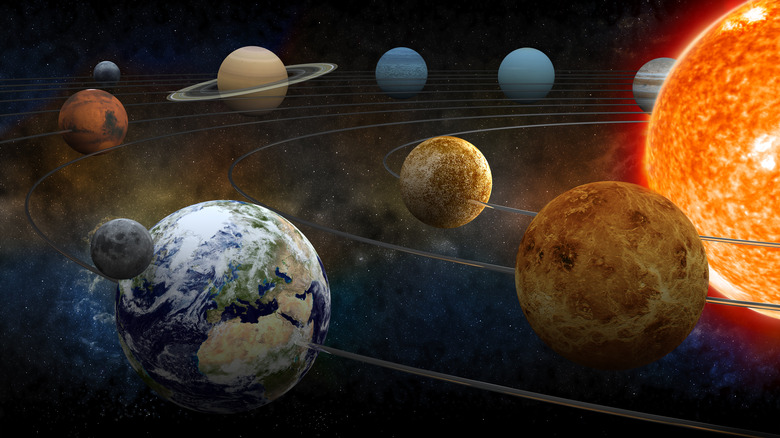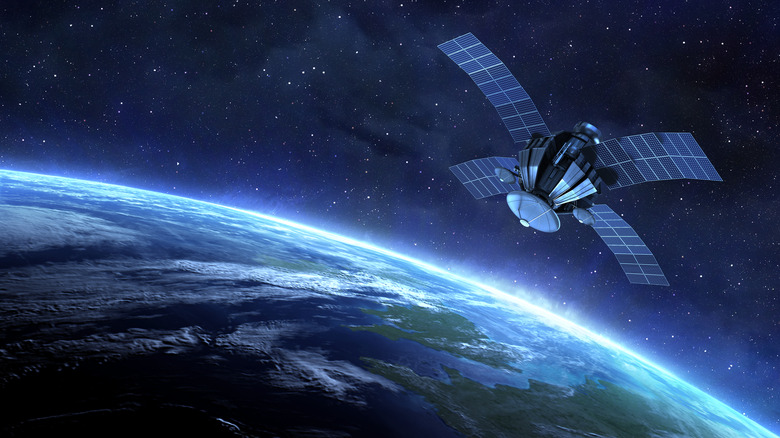The Science Behind Why Some Years Have Leap Days
This year, 2024, will see something a little bit unusual at the end of February: a leap day. This year's month of February will have an extra day compared to most Februaries, ending with February 29th instead of the usual February 28. The reason that happens is to due with the way that Earth orbits around the sun, and the arbitrary nature of time measurement.
We all know that a year lasts 365 days, but this isn't an exact figure. A day is based on the amount of time it takes for Earth to complete a full rotation — this is, how long it takes for the planet to spin a full 360 degrees on its axis. And a year is based on how long it takes the Earth to complete a revolution around the sun — that is, how long it takes to move completely around the sun and end up back where it started.
The problem is that a year is not exactly divisible into a perfect fraction of days. We instead put into a into a calendar a rounded version of long it takes for the planet to spin, and how long it takes to orbit. In truth, each year is in fact 365 days, 5 hours, 48 minutes and 46 seconds, according to NASA.
This is where the leap day comes in. "The total amount of time it takes the Earth to complete a revolution around the sun is not exactly a whole number of days," said Renu Malhotra, a Planetary Sciences professor at the University of Arizona. "It falls about six hours short of that. So every four years we add a day to compensate."
An occasional leap year
Years which include a leap day, like 2024, are called leap years. However, it's not as simple as having a leap year every four years exactly.
That's because the adjustment of an extra day every four years works out at the rate of six hours added per year, which is just a little lpnger than the 5 hours and 48 minutes which are required. So occasionally, leap years are skipped to allow for this.
Generally every 100 years a leap year is skipped. Typically the leap year which is skipped is when a year number is divisible by 100 but not 400. So 2400 will be a leap year, but the years 2100, 2200 and 2300 will not.
This needs to be coordinated carefully across international organizations to ensure everyone is operating on the same time. As well as leap years, sometimes smaller adjustments called leap seconds need to be made to allow for Earth's rotation.
"Our calendar is constantly in need of monitoring," Malhotra explained. "Every now and then you'll hear about a leap second being added to a year. That happens sometimes because the Earth's rotation speed fluctuates, for example, from continental movements, and it is also slowing down gradually because of lunar and solar tides and friction within our planet. These can affect spin rate and make the planet rotate a little more or a little less in a given year."
Why timing is so important
Given how complex all of this is, and how much effort goes into keeping the world on time, you might wonder if it's really necessary. But accurate time keeping turns out to be extremely important for certain areas of science and technology.
The satellites orbiting the Earth which are used for GPS, for example, need very precise timekeeping to work out how its movements relate to positions on the Earth. According to GPS.gov, the U.S. government website for GPS, each GPS satellite contains an atomic clock which keep very exact time, enabling the GPS system as a whole to determine the exact time to within 100 billionths of a second.
This is important for everything for communications systems to electrical power grids, as many different systems can use GPS to keep in time. The GPS system is also used by other government bodies such as the Federal Aviation Administration to synchronize its reports of hazardous weather.
Exact timing is also important when looking out to the stars, as many of the instruments taking astronomical readings are extremely sensitive and are looking for tiny changes in signals which come from distant stars or other objects. As Malhotra explained. "I'm an astronomer, and for any observation of astronomical events, we need high accuracy to know when to schedule certain operations with very expensive equipment and facilities," she said. "Or when using navigation with GPS on your smartphone, the GPS satellites need that kind of accurate timekeeping."


